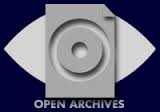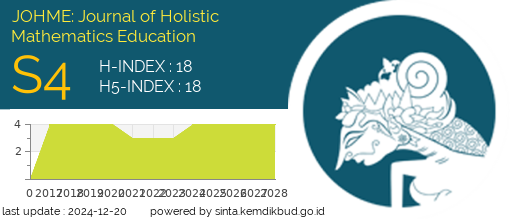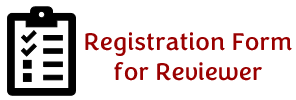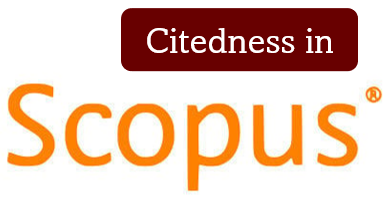![]()
About the Journal
Focus and Scope
JOHME is an online scientific journal designated as a medium for communication among scholars who practice the integration of faith and learning based on a broader and holistic understanding towards mathematics education. It is committed to publishing high quality articles about research, teaching, philosophy, and curriculum development which show holistic approaches in mathematics education. JOHME is published by the Department of Mathematics Education, Teachers College, Universitas Pelita Harapan biannually in December and June.
Peer Review Process
Manuscripts submitted will go through the evaluation process with a system of double-blind peer review by reviewers selected by the Editorial Board with at least one of whom is a member of the Editorial Board. Reviewers are appointed under consideration of expertise and suitability to the subject. Results of the evaluation will be communicated within 1-2 months. On the basis of reviewers’ comments and recommendations, the Editorial Board will decide whether the manuscript is accepted without revision, accepted with revisions required, or rejected. The revised manuscript should be returned to the Editorial Board within a predetermined time.
Publication Frequency
JOHME is published twice annually in June and December. All submitted manuscripts will be peer reviewed by two experts related to the contents of the manuscripts. Because of rigorous and lengthy publication processes, authors is suggested submit their manuscripts three month before the intended publication month. Authors must monitor routinely the processes through their registered accounts.
Open Access Policy
This journal provides immediate open access to its content on the principle that making research available to the public supports a greater global exchange of knowledge. This access is freely available without charge to the user or his/her institution. Users are allowed to read, download, copy, distribute, print, search, or link to the full texts of the articles in this journal without asking prior permission from the publisher or the author. This is in accordance with the BOAI definition of open access
Author Fees and Publication Charges Policy
This journal does not charge any author processing fees or article submission fees. There are no costs that the author is required to pay.
Author Self-Archiving Policy
This journal permits and encourages authors to post items submitted to the journal on personal websites and institutional or funder repositories after publication. The final published PDF version should be used and bibliographic details that credit the publication in this journal should be included.
Competing Interest Policy
A competing interest is anything that interferes with, or could reasonably be perceived as interfering with, the full and objective presentation, peer review, editorial decision-making, or publication of research or non-research articles" (with acknowledgement and thanks to PLoS).
Competing interests can be financial or non-financial, professional, or personal. Competing interests can arise in relationship to an organization or another person.
Declaring all potential competing interests is a requirement and is integral to the transparent reporting of research.
1) Authors must declare all relevant competing interests for consideration during the review process.
2) Editors (professional or academic, paid or unpaid) and reviewers must declare their own competing interests and if necessary recuse themselves from involvement in the assessment of a paper.
3) Anyone who comments on or rates published papers in JOHME must declare their competing interests at the time of posting their comments and/or rating.
Complaints Policy
Complaints should be sent via e-mail to the publishing team at editor.johme@uph.edu. In your complaint, please clearly describe the nature, circumstances, and subject of the complaint. All complaints will be addressed promptly following the best practice in the ethics of scholarly journal publishing.
Copyright Policy
Authors retain copyright and grant the journal right of first publication with the work simultaneously licensed under a Creative Commons Attribution-ShareAlike International License (CC-BY-SA 4.0) that allows others to share the work with an acknowledgement of the work's authorship and initial publication in this journal.
Authors are able to enter into separate, additional contractual arrangements for the non-exclusive distribution of the journal's published version of the work (e.g., post it to an institutional repository or publish it in a book), with an acknowledgement of its initial publication in this journal.
Publication Ethics and Misconduct Policy
JOHME and its editors will take reasonable "steps to identify and prevent the publication of manuscripts where research misconduct has occurred, including plagiarism, citation manipulation, and data falsification/fabrication, among others." In the event that we are made aware of any allegation of research misconduct relating to a published manuscript, we will follow the Committee on Publication Ethics’ (COPE) Core Practices for dealing with allegations. [With acknowledgment and thanks to DOAJ.]
The following statement, adopted from COPE’s core practices, outlines JOHME’s publication ethics and clarifies the ethical behavior of all parties involved in the act of publishing a manuscript in JOHME, including the authors, the editors, the reviewers, and the publisher, namely Universitas Pelita Harapan.
Part A: General Publishing Ethics
1. All submitted manuscripts are subject to a strict double-blind peer-review process by the reviewer(s) that are experts in the content area of the manuscript.
2. The manuscripts will be reviewed on its language, relevance, soundness, contribution, originality, readability and other criteria determined by the COPE core practices
3. The post-reviewed manuscripts will be either accepted, asked for a revision, or rejected.
4. The manuscript acceptance is constrained by such legal requirements as libel, copyright infringement, and plagiarism.
5. No manuscript can be published in more than one publication anywhere.
Part B: Author Ethics
1. Authors certify that the manuscript is their original work, has not been published, and is not being sent to another publisher simultaneously.
2. Authors participate in the peer review process, including but not limited to, providing retractions or corrections of the manuscript.
3. Authors state that all data in the manuscript are real, authentic, and new (not reproducing their own work).
4. Authors inform the Editor in Chief of retractions or corrections if they find an inaccuracy in their published manuscript.
Part C: Reviewer Ethics
1. Reviewers disclose any competing interest before agreeing to review a manuscript and refuse to review due to a conflict of interest or inadequate knowledge of the manuscript content.
2. Reviewers conduct their task objectively and professionally, with no personal criticism of the author.
3. Reviewers express their views clearly by making markups on the manuscript.
4. Reviewers identify relevant published work that has not been cited by the authors.
5. Reviewers notify the editor when they find any ethical misconduct in the manuscript being reviewed.
Part D: Editor Ethics
1. Editors maintain the confidentiality of the manuscript and reviewing process.
2. Editors ensure appropriate reviewers of the manuscript are selected
3. Editors make decisions on the acceptance of the manuscript solely on its intellectual merit (originality, novelty, and significant contribution to the field).
4. Editors are responsible for the content and overall quality of the publication, conforming to the general publishing ethics.
5. Editors hold the right to reject, ask for a revision, and accept the manuscript and decide when it will be published.
6. Editors take necessary action if encountering suspected misconduct, whether the manuscript is published or unpublished, and make all reasonable attempts to persist in obtaining a resolution to the problem.
Indexing and Abstracting
JOHME is indexed and abstracted by the following services

![]()

Membership
UPH and JOHME are registered with the following organizations:



Plagiarism Policy
As already stated in the above Ethics and Misconduct Policy, JOHME and its editors will take reasonable steps to identify and prevent the publication of papers where plagiarism has occurred. Editors and reviewers will use free plagiarism screening tools such as the below to assist in this.
- Plagiarism Checker: http://smallseotools.com/plagiarism-checker/
- Dustball: http://www.dustball.com/cs/plagiarism.checker/
- DupliChecker: http://www.duplichecker.com/
- Plagiarisma: http://plagiarisma.net/
- PlagTracker: http://www.plagtracker.com/
- Google: http://google.com
In no case shall JOHME or its editors "encourage such misconduct, or knowling allow such misconduct to take place." In the event that we are made aware of any allegation of plagiarism relating to a published article, we will follow COPE's Guidelines for dealing with allegations. [With acknowledgement and thanks to DOAJ.]
Journal History
Introduced in late 2017, Journal of Holistic Mathematics Education (JOHME) is a biannual publication of the Department of Mathematics Education, Teachers College, Universitas Pelita Harapan. As the name indicates, JOHME publishes scientific articles about holistic answers to issues of research, teaching, philosophy, and curriculum development of mathematics education.
JOHME is a SINTA 3 accredited journal by the Minister of Research, Technology, and Higher Education, Decree Number 158/E/KPT/2021 dated 9 December 2021 starting Vol 3, No 2, December 2020 valid for 5 years.









